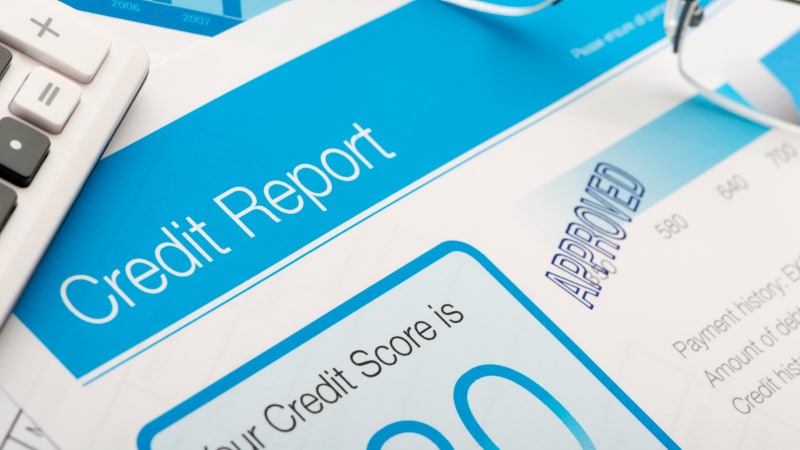What is a credit report

When you apply for a credit card, mortgage or loan, the lender will most likely request access to your credit report. Your credit report provides important insights into your financial background and gives your lenders a look at your payment history and creditworthiness so they can determine your eligibility for credit.
Understanding your credit report
A credit report is a detailed report that provides information on how you've used your credit in the past. This includes how much debt you have accumulated and whether you've paid your bills on time. You're eligible to receive a free credit report every 12 months from each credit bureau.
A credit bureau is an organization that collects and distributes credit information. In simpler terms, a credit bureau stores information about how a person has demonstrated their credit responsibility. The three major credit reporting agencies where you can find credit reporting are Experian™, Equifax® and Transunion®. The credit bureaus collect information regarding your loans and credit card accounts and generate credit reports based on this information. A credit bureau report's primary information includes the repayment history of past and existing loans and credit card accounts, which then helps determine your creditworthiness.
How to get a free credit report
Checking your credit report doesn't have to be difficult. Follow these steps if you're wondering how to get a free credit report:
- Visit the website: Your free credit report can be accessed at annualcreditreport.comOpens overlay. You can order your credit report from individual bureaus or all three by visiting the website or calling 1-877-322-8228.
- Enter your personal information: To get your free annual credit report, you'll need to provide your full name, current and/or any previous address, social security number and date of birth.
- Request a report: Your report can be ordered from one, two or all three of the credit bureaus.
- Answer security questions: For each report you request, you'll be asked questions about your finances that only you should be able to answer. This includes things like when you took out an auto loan or the approximate amount of your mortgage payment. If you request your report by mail or phone, you may not be required to answer security questions
- Generate your credit report: Ordering your credit report online may be the quickest way to access it. You can do this online, by mail or over the phone. Your credit report should be sent to you within 15 business days from when you requested.
- Review our report: When reviewing your credit report, look for accounts that aren't yours, incorrect information and negative information. Errors can hurt your credit score, so you'll want to dispute them if there are any.
- Monitor your credit: It's important to monitor your scores and reports to help you detect things like identity theft or overlooked payments. Monitoring can also help you track the progress you're making on building your credit.
What does a credit report show?
Your credit report will show personal information that identifies you like your date of birth, social security number, address, previous addresses, phone numbers, credit accounts and payment history. It may also include things like collections, repossessions, foreclosures and bankruptcy filings. Credit reports also have records of who has accessed your credit information. This can consist of the names of your creditors and marketers.
You may find two types of inquiries on your credit report and it's beneficial to know the difference between the two. The two types are hard inquiries and soft inquiries. Hard inquiries on your credit report indicate that a lender checked your credit report and typically involves a decision about loaning money or extending credit. Hard inquiries can show up on your credit report for up to two years and could potentially affect your credit score. Soft inquiries are simple reviews of your credit and don't affect your credit score or appear on the credit reports that potential lenders view.
Keep in mind, your credit report won't include information about your marital status, income, level of education or checking or savings account balance. It could, however, include your spouse's name if it's been reported by a creditor.
When do credit reports update?
Your credit scores may vary, but that's because they can change frequently due to updates to your credit files at the three bureaus. Most creditors report to the credit bureaus monthly, but they report data at various times throughout the month and they may report to only one or two bureaus instead of all three. Your credit report can be continually evolving depending on how much new information is reported. The new data is reflected in your credit score once your report updates.
How often should I check my credit report?
Credit reporting errors exist, so it's important to check your three credit reports from Experian, Equifax and Transunion to see any potential errors. Doing so may be the best way to discover whether you have credit reporting errors. The Fair Credit Reporting Act (FCRA) gives you the right to claim a free copy of your credit reports from each bureau every 12 months. But if you want to make sure your report stays accurate, checking once every 12 months may not be enough.
While the decision is up to you, checking your credit reports at least once a quarter can help ensure that there are no inaccuracies. If you're planning to apply for new credit to make a big purchase, it may be a good idea to check up on your credit report before you make this purchase.



